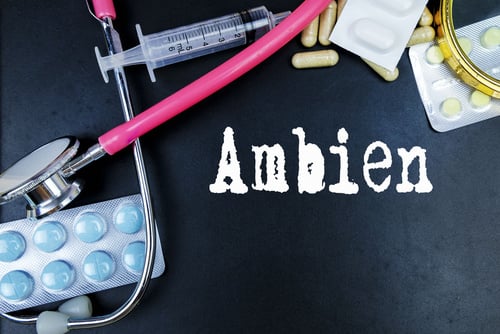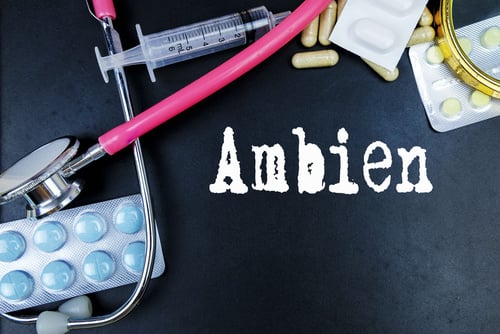Can Ambien Cause A High?
Ambien is a brand name medication; the generic form is known as zolpidem. It is used to treat certain sleep issues (e.g., insomnia). According to the Centers for Disease Control and Prevention (CDC) between 50 to 70 million adults in America experience sleep deprivation or a sleep disorder. To achieve better sleep, nearly 38 million of them are prescribed Ambien. When Ambien is taken exactly as directed, under strict supervision of a qualified medical professional, it can be a highly effective medication. The average half-life, meaning the length of time the substance will remain in one’s system until the concentration in one’s blood has been reduced by half, of Ambien is about 2.5 hours. The recommended dose of Ambien is one dose of 10 mg per day to be taken before going to bed. The effects of Ambien typically begin around 30 minutes after taking the medication. Any amount taken above this dose or extended duration of use can increase one’s risk of experiencing unwanted side effects.
How Does It Work?
Ambien belongs to a class of medications known as sedative-hypnotics. Ambien is a central nervous system depressant that works by acting on certain neurotransmitters in one’s brain, specifically the GABA-A (gamma-aminobutyric acid-A). When Ambien binds to this receptor it elicits a calming effect as it slows down excessive brain activity and inhibits the specific brain activity associated with insomnia. The United States Drug Enforcement Administration (DEA) classifies Ambien as a Schedule IV Substance, which are defined as “drugs with a low potential for abuse and low risk of dependence.” Ambien is not intended for long-term use; rather short treatment periods lasting one to two weeks long, or less are most common.
Abusing Ambien
Ambien can have many side effects that may occur even when using the medication as prescribed. Abuse of Ambien, however, can lead to a plethora of adverse short and long-term effects. There are many ways an individual could intentionally or unintentionally abuse Ambien. It is considered substance abuse when an individual consumes Ambien in a way other than directed by her prescribing physician (e.g., crushes a pill and snorts it instead of swallowing it). It is considered Ambien abuse when an individual increases the dosage she ingests without approval from her prescribing physician. An individual that mixes Ambien with other substances (e.g., drugs and/ or alcohol) is abusing the substance. It could be considered Ambien abuse when an individual continues to use the medication beyond the length of time prescribed. When a person without a valid prescription takes Ambien, she is abusing the substance. Even though Ambien is classified as a sedative, when it is abused in high doses it can result in the user experiencing a rush of energy and euphoria. To answer the above question: Yes, when used incorrectly, Ambien can cause a high.
For Information and Support
Substance abuse and addiction can be incredibly dangerous and can result in severe short and long-term consequences. If you or someone you know is suffering from substance abuse or addiction, please get help as soon as possible. The earlier you seek support, the sooner you and your loved ones can return to leading happy, healthy, and fulfilling lives. There is no reason to go through this alone, and we are here to help. Please feel free to reach out to us for further information or with any questions regarding substance abuse or addiction. We are available anytime via telephone at: 213-389-9964, or you can always email us at: info@friendlyhousela.org.



